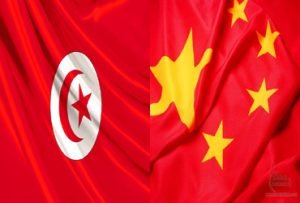The relationship between Tunisia and China is a story of enduring friendship, mutual respect, and a vision for shared progress. The two countries established formal diplomatic ties in January 1964, but their connection goes back even further. In 1955, during the Bandung Conference, Chinese Premier Zhou Enlai openly supported Tunisia’s struggle for independence, sending a strong signal of solidarity to a nation still fighting for self-determination. This early support laid the foundation for what would become a remarkable journey of cooperation.
Over the decades, relations between the two nations grew steadily. A significant milestone came in April 2002, when Chinese President Jiang Zemin visited Tunisia. The visit resulted in a number of bilateral agreements covering economic, technological, cultural, and medical cooperation, including the deployment of Chinese medical teams to Tunisia. In January 2024, Tunisia and China celebrated the 60th anniversary of their diplomatic ties, an occasion that highlighted not only the depth of the relationship but also its capacity for renewal. Tunisian President Kais Saied inaugurated the Tunisian International Diplomatic Academy, a project built with Chinese support, as a symbol of this cooperation.
The most important turning point came only months later, in May 2024, when President Kais Saied paid a state visit to Beijing. During this visit, Tunisia and China elevated their ties to a “strategic partnership,” opening a new chapter in bilateral relations. The two presidents presided over the signing of several agreements in areas such as green development, healthcare, investment, education, and tourism. The visit coincided with the 10th Ministerial Conference of the China-Arab States Cooperation Forum, where Tunisia reaffirmed its commitment to working closely with China not only on a bilateral level but also within the broader framework of Arab–Chinese cooperation.
Today, China is among Tunisia’s key economic partners. Bilateral trade reached more than 2.2 billion US dollars in 2023, marking steady growth despite global economic challenges. Chinese companies are engaged in several infrastructure projects in Tunisia, including the construction of a bridge over the Bizerte Canal and a major solar power plant in Kairouan that will contribute to Tunisia’s renewable energy goals. Meanwhile, new projects in 2025 are focusing on modernizing the El Menzah Olympic Stadium and supplying public buses for Greater Tunis.
Agriculture and trade are also emerging fields of cooperation. Discussions in early 2025 focused on easing barriers to Tunisian exports such as olive oil, dates, and seafood, which are highly valued in the Chinese market. Tunisian participation in the China-Africa Economic and Trade Expo reinforced the potential for expanded exports and investment partnerships.
Cultural and educational exchanges remain another strong pillar of this relationship. Since 1979, the two countries have signed 14 plans for cultural cooperation. The Confucius Institute at the University of Carthage, inaugurated in 2019, has been a platform for language and cultural exchange, while Chinese medical teams have been working in Tunisia since the 1970s, creating bonds of trust and appreciation between the peoples. In April 2025, China was the guest of honor at the Tunis International Book Fair, an event that underlined the growing cultural dialogue between the two nations.
Looking to the future, Tunisia and China are determined to deepen cooperation under the Belt and Road Initiative and within the framework of the Asian Infrastructure Investment Bank. Both sides see opportunities for collaboration in green energy, digital technology, healthcare, agriculture, and education. The strategic partnership announced in 2024 provides a solid platform to move forward with projects that serve mutual interests while also contributing to broader goals of regional integration and sustainable development.
The story of Tunisia–China relations is not only about governments but also about people-to-people connections. It is about Tunisian students learning Chinese in Carthage, Chinese doctors working in Tunisian hospitals, Tunisian farmers exporting their finest olive oil to Beijing, and cultural exchanges that bring the two civilizations closer. As Tunisia and China build upon their shared history, the future promises a partnership marked by innovation, mutual prosperity, and a shared commitment to building a community of common destiny.
TunisianMonitorOnline (Douha Essaafi)




